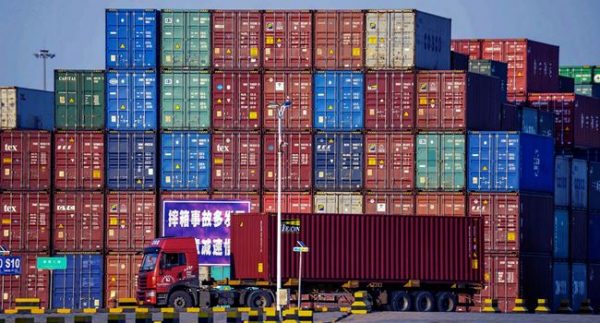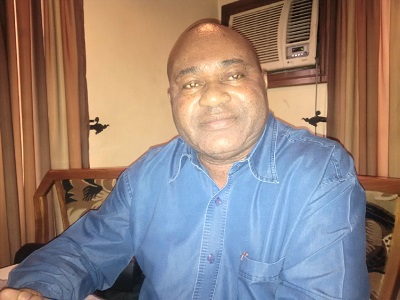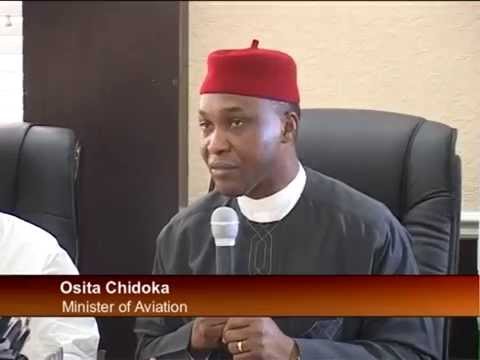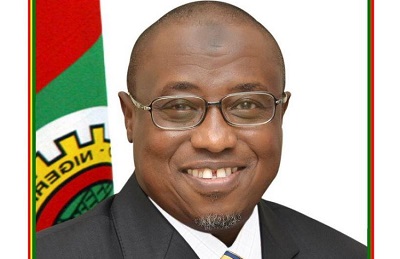Why Scanners, Single Window Challenges Will Linger Beyond 2020
 · Customs can’t jettison 100% physical examination – Abba-Kura
· Customs can’t jettison 100% physical examination – Abba-Kura
· Private sector should be engaged to manage scanners – Freight Agents
By Kenneth Jukpor
Despite the federal government’s promise to provide scanners and a National Single Window platform available at the nation’s seaports before the end of 2020, there are worrying signs that these would go down as failed promises.
Three weeks after the federal government assured Nigerians that cargo evacuation at the nation’s seaports would be enhanced with the provision of scanners and the deployment of a Single Window platform, there is no proof of such plans.
Although the Minister of Industry, Trade and Investment, Otunba Adeniyi Adebayo, gave this assurance last month during an investigative hearing on the incessant influx of fake, substandard and counterfeit products into the country, organized by the House of Representatives Joint Committee on Commerce; Industry; Information; National Orientation; Ethics and Values, neither presidency sources, maritime regulatory agencies or the leadership of Nigeria Customs Service (NCS) can provide any information to support this.
Maritime stakeholders, although initially elated by the promise, have asked the government for proof that funds have been appropriated for the scanners, insight into the companies or countries to supply the scanners and precise date to expect the equipment.
A top managerial source at Customs, however, told our correspondent that the Service wasn’t aware of any plans to acquire scanners for the seaports despite assurances from the federal government.
Efforts to reach the Special Adviser to the President on Ease of Doing Business, Mrs. Jumoke Oduwole on the developments following these promises have been futile.
Despite availing a contact person as Project Manager and assuring our correspondent to reply to an interview questionnaire, neither Oduwole nor the Project Manager picked calls or replied to the questionnaire sent three weeks ago.
Meanwhile, maritime experts have described the lack of national Single Window and scanners as twin issues that are major impediments to expeditious cargo clearance at the nation’s seaports.
Recall that a delegation from the International Monetary Fund (IMF) also identified the absence of a national Single Window platform and absence of scanning machines for customs operations as the bane of Nigerian ports, earlier this year.
IMF Mission Chief and Senior Resident, Representative for Nigeria African Department, Mr. Amine Mati stated this when he took a tour of Nigerian ports as part of compilation and publication of the IMF Economic Outlook Review for 2020.
The IMF delegation which visited to inspect Nigeria’s port activities, determine challenges, priorities and policies put in place by the federal government, particularly identified scanners, national single window as very important to accelerate cargo evacuation process in the country.
Meanwhile, terminal operators under the aegis of Seaport Terminal Operators Association of Nigeria (STOAN) have indicated interest in providing scanners if given an opportunity for such arrangement by the federal government.
When contacted, the spokesman of NCS, Mr. Joseph Attah stressed that most Customs processes are already automated under the Nigerian Customs Integrated System (NICIS II) platform.
“NICIS II is a limited Single Window within Customs operations; however, there is this move to have a national Single Window. I don’t know if I’m competent to speak about it because it is being handled by the Presidential Enabling Business Environment Council (PEBEC) which is under the office of the Vice President, Prof. Yemi Osinbajo,” he said.
Although he opined that the development of the national Single Window should be at advanced stage, he declined commenting on the deployment of scanners, noting that the Service wasn’t in a position to divulge information on scanners.
Speaking with newsmen last week, the Area Controller of Apapa Customs Service, Comptroller Mohammed Abba-Kura described the absence of scanners as an additional toll stretching officers physically and psychologically.
Abba-Kura who was addressing press on the Command’s half year report for 2020, said, “If the government makes scanners available today, I’ll be one of the happiest persons. Scanners would assist us in the discharge of our duties without much stress. As long as scanners aren’t functional and the new ones we have been promised haven’t arrived, we would continue to do 100 percent physical examination.”
The Area Controller noted that Customs examination of cargoes wasn’t just for generation of revenue but also for inspection to prevent potential threats to national safety.
According to him, Customs can’t abandon physical examination because of the slightest possibility of untrue declaration.
“Even if we can attain 80 percent true declaration of cargoes at the ports, the remaining 20 percent could cause serious danger to the government and the citizens of the country. This is because of the kind of items like tramadol, codeine and other health products without approval from the National Agency for Food, Drug Administration and Control (NAFDAC), that will be imported. Others would possibly say they are importing used bicycles and all documentation would support this, but you open the container to find something different,” Abba-Kura queried.
He stressed that despite the challenge of COVID-19 pandemic leading to the clamour for abandonment of physical examination, it would be too costly for the Customs to stop physical examination.
Speaking from the point of view of freight forwarders, President of the Association of Nigeria Licensed Customs Agents (ANLCA) Mr. Tony Iju Nwabunike lamented that the deployment of scanners at the nation’s seaports is long overdue.
He, however, stressed that the responsibility of managing scanners shouldn’t be left to Customs or any government agency, as such roles should be outsourced to private companies with the capacity and expertise.
“We need scanners in this country and it is actually a matter of urgency. We can’t continue with manual examination at the ports. However, the industry needs a distinct independent body to manage the scanners and this should be a private entity. The private company should be saddled with the onus of changing or upgrading the scanners once in every 5 years,” Nwabunike said.
The veteran freight forwarder expressed dissatisfaction that the issue of national Single Window was still unresolved in the nation, noting that Webb Fontaine should have concluded the development of the Single Window years ago.
According to him, the COVID-19 pandemic further buttresses the need to have automated ports which can’t be achieved without the deployment of scanners and the national Single Window.
On the possibility of having terminal operators provide scanners, Nwabunike kicked against the move, insisting that distinct private companies should be engaged for such services.








